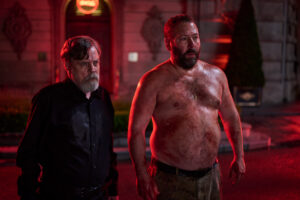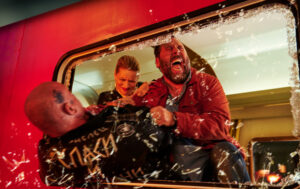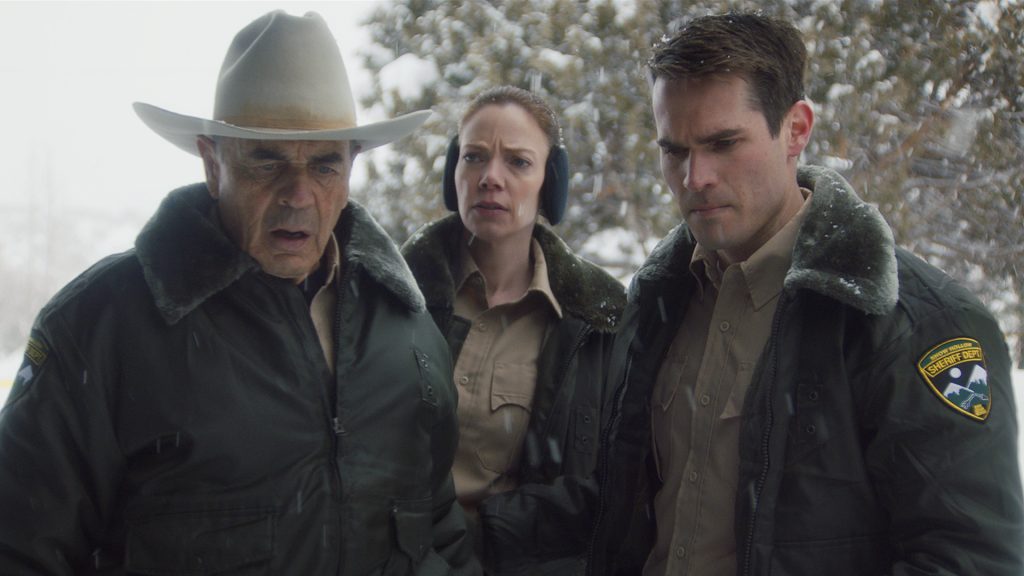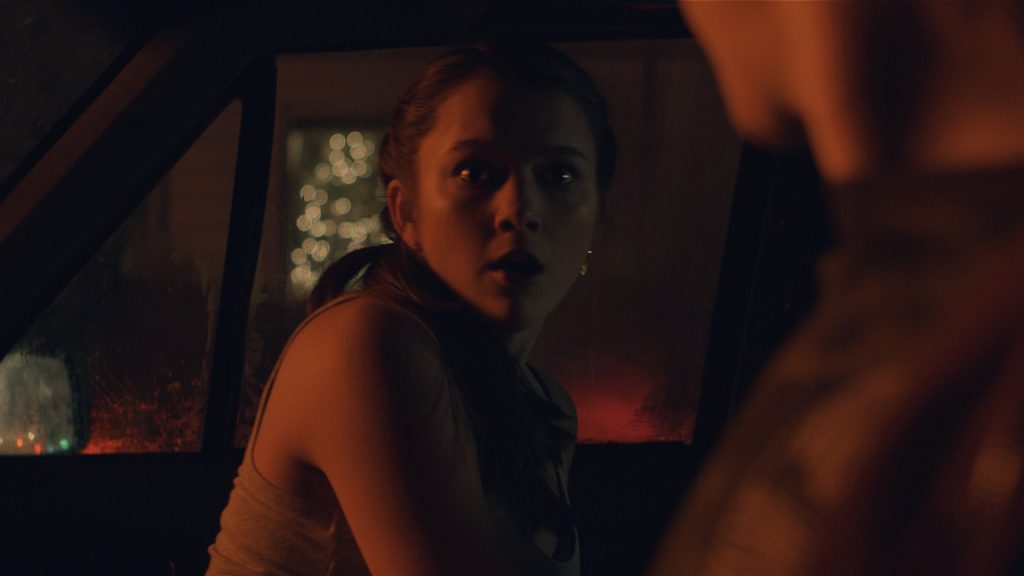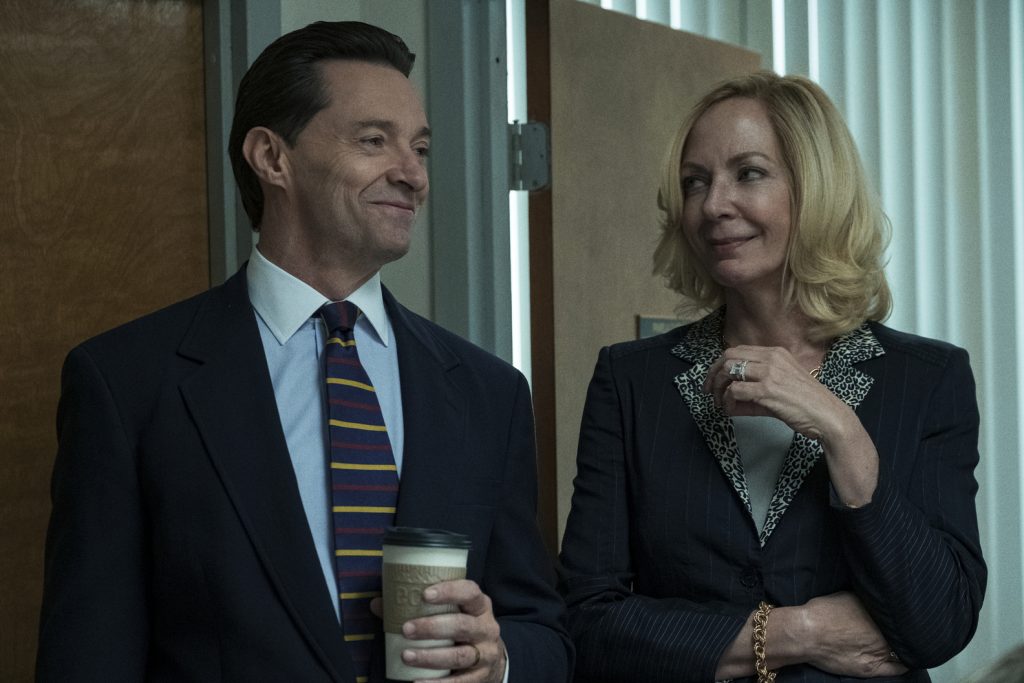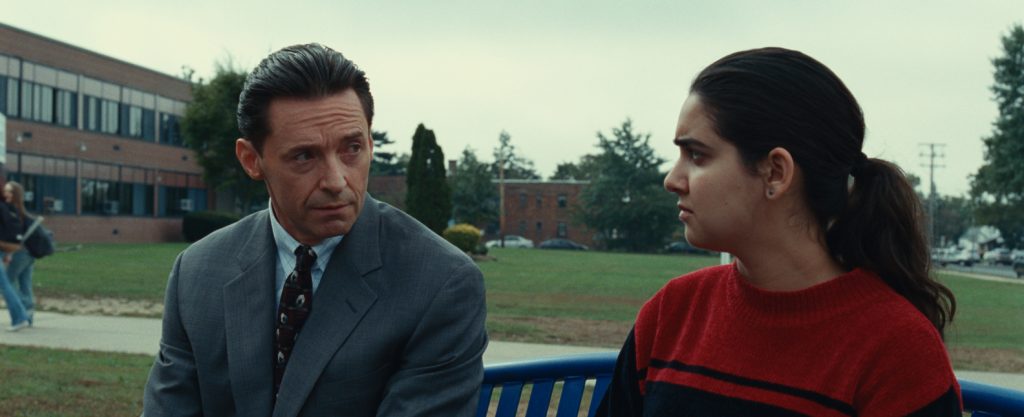August 4, 2023
by Carla Hay

Directed by Molly Gordon and Nick Lieberman
Culture Representation: Taking place in Passaic County, New York, the comedy musical film “Theater Camp” features a predominantly cast of characters (with some Asians, Latinos and African Americans) representing the working-class, middle-class and wealthy.
Culture Clash: A financially struggling summer camp, which is for tweens and teens, rehearses and performs an original musical while the camp faces a hostile takeover from an investment company that owns a rival camp.
Culture Audience: “Theater Camp” will appeal primarily to people who are fans of the movie’s headliners and comedies that are satires of summer camps and youthful musical theater.
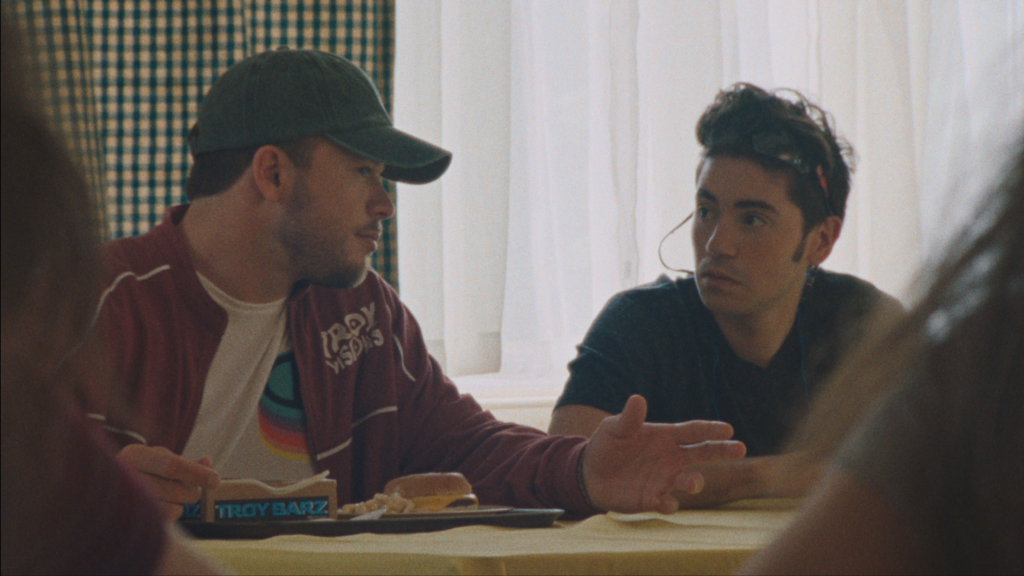
“Theater Camp’s” mockumentary style of comedy is at times a little too self-aware and smug. However, this movie about a musical theater group at a summer camp makes great use of eccentric and memorable characters who range from charming to annoying. It’s not a classic on the level of 1996’s “Waiting for Guffman,” but “Theater Camp” is the type of movie that is bound to have a very devoted group of fans. “Theater Camp” has its world premiere at the 2023 Sundance Film Festival, where the movie won the U.S. Dramatic Special Jury Award for Ensemble Cast.
Directed by Molly Gordon and Nick Lieberman (who co-wrote the “Theater Camp” screenplay with Noah Galvin, “Theater Camp” is based on the 2020 short film of the same name, which was directed by Lieberman and had the same writers as the feature-length “Theater Camp.” Both movies have some of the same cast members, including Gordon, Galvin, Ben Platt and Patti Harrison. However, the characters in each are different.
In the feature-length “Theater Camp” (which takes place in Passaic County, New York, and was filmed in Warwick, New York), a longtime summer camp called the Adirond Acts (a play on words of the Adironacks Mountains in New York state) is on the verge of shutting down, due to financial problems. The children who attend this camp range in ages from 10 to 17. Amos Klobuchar (played by Platt) is the camp’s head of drama. Rebecca-Diane (played by Gordon) is the camp’s head of music.
Amos and Rebecca-Diane are best friends and have been teaching at the camp for the past 10 years. Every year, Amos and Rebecca-Diane write, compose and direct a new stage musical for the camp. Their past musicals include “Blackmail and Botox,” “The Briefcase, the Door and the Salad” and “A Hanukkah Divorce.” This year, they have to write and produce an original stage musical for the camp in only three weeks. It’s called Joan, Still.” And it’s all being filmed for a documentary.
The opening scene of “Theater Camp” takes place at Greenwood Middle School in the late spring. Adirond Acts camp founder Joan Rabinsky (played by Amy Sedaris) is attending a performance of the school’s production of the musical “Bye Bye Birdie.” Joan is the subject of this documentary that is the basis for the “Theater Camp” mockumentary. Joan has told only a few people that Adirond Acts is close to shutting down.
At the school’s performance area, Adirond Acts camp manager Rita Cohen (played by Caroline Aaron): “We have to give Taylor the lead in ‘Les Miz.'” Joan asks, “Why Taylor? He’s awful.” Rita replies, “I know, but his parents are so rich.” Joan says, “Come on. You know we don’t do things that way. It’s always got to be about the talent. How rich?” Rita responds, “So rich!”
Things don’t go well for Joan during this “Bye Bye Birdie” performance. The lighting during the performance gives Joan a seizure. After just one day of filming the documentary, Joan has to walk with a cane and is recovering from her seizure. The decision is made to keep filming, but Joan has put her obnoxious stoner son Troy Rubinsky (played by Jimmy Tatro) temporarily in charge of Adirond Acts.
Troy is a business vlogger who calls himself a “financial guru and a worldwide business mentor.” The only things he seems to be good at are showing how unintelligent he is and getting in the way of people trying to do their work at the camp. As irritating as Troy is, there’s no denying that he has some of the funniest lines in “Theater Camp.” Tatro is a scene stealer in this role.
In order to cut costs, Troy laid off a number of out-of-the-area teachers at the camp. Troy wants to hire locally, so he places an ad to find local teachers. Only one person answers the ad and she has no experience in teaching. Her name is Janet Walch (played by Ayo Edebiri), who is willing to learn on the job. Janet is predictably incompetent in many ways in this job that is new to her.
The other adult employees at the camp are experienced, but they are stressed-out when they hear that the camp’s original musical hasn’t been written yet and it’s supposed to do its first performance in three weeks. Stage manager/technical director Glenn Winthrop (played by Galvin) is nerdy and earnest. Costume designer Gigi Carbonier (played by Owen Thiele) is stereotypically flamboyant. Head of dance Clive Dewitt (played by Nathan Lee Graham) is drolly sarcastic.
Watching all of these proceedings closely is schemer Caroline Krauss (played by Harrison) from Camp Lakeside, where most of the kids come from rich families. Caroline is a junior project manager at Barnesnell Capital, an investment group. Caroline knows that the bank has filed a notice of default for Adirond Acts. Caroline tells Troy, that Barnesnell Capital “would love to get in bed with Adirond Acts.” Glenn warns Troy not to do business with Barnesnell Capital.
“Theater Camp” is more like a series of sketches threaded together instead of a deeply layered story. There’s a frenetic tone to the movie that’s supposed to match the tension of doing a hastily made stage musical. The kids in the musical are not given as much importance in “Theater Camp” as the adults who are scrambling to finish the musical on time while pretending to the kids that they have everything under control.
Most of “Theater Camp” will offer mild chuckles instead of non-stop, laugh-out-loud moments. Its not a movie with much subtlety, because it goes down a predictable path of “Look at all these neurotic people” and “Hey, kids, let’s put on a show!” The “Theater Camp” cast members have very good comedic timing though, with Platt and Gordon giving believable performances as longtime friends who are musical theater fanatics.
As directors, Gordon and Lieberman bring a brisk pace to the movie, although some moments tend to get repetitive. The movie’s running joke is that “Joan, Still” has some sections that are not appropriate for children. Toward the end of “Theater Camp,” there’s a hilarious surprise, which is one of the more original ideas in the film. As a mockumentary, “Theater Camp” mostly succeeds as a parody of real summer camps and youthful music theater, but people who dislike musical theater will probably find this movie very hard to enjoy.
Searchlight Pictures released “Theater Camp” in select U.S. cinemas on July 21, 2023.

